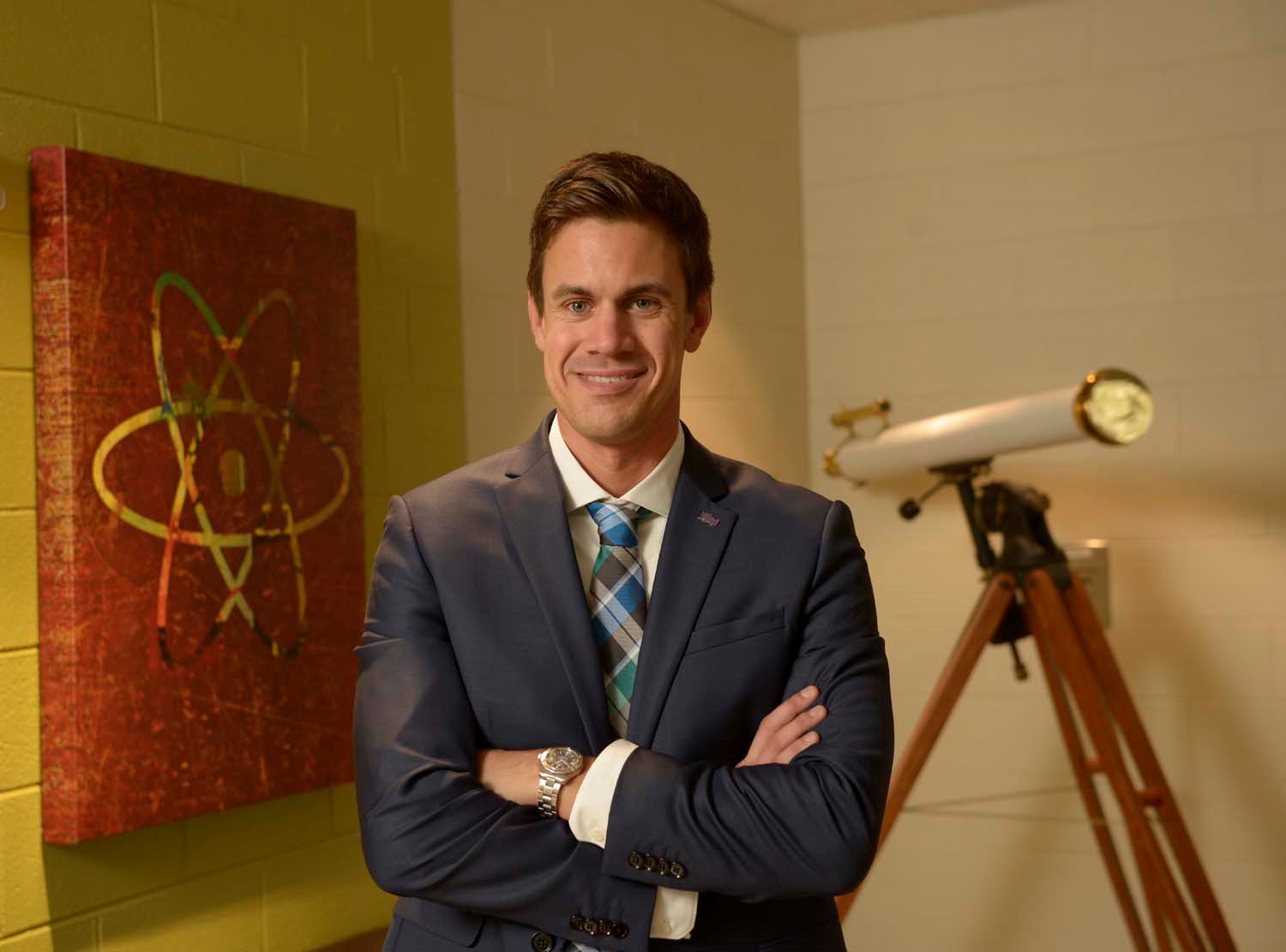NASA Awards Research Grant to
HPU Astrophysics Professor

HIGH POINT, N.C., Oct. 18, 2019 – High Point University’s Dr. Brad Barlow, associate professor of astrophysics and director of the Culp Planetarium, was recently awarded a research grant by NASA.
Using data gathered during a research trip with HPU students to the Andes Mountains in Chile, Barlow submitted a proposal to NASA’s Transiting Exoplanet Survey Satellite (TESS) Guest Investigator Program to observe new variable stars, which play a crucial role in understanding the universe. NASA not only accepted Barlow’s proposal, but offered $29,999 in funding to support his research over the next two years, which will include HPU students.
“As the data slowly comes in, we expect to find several new compact binary stars that might shed light on supernovae explosions and stellar evolution as a whole,” says Barlow. “It's a really exciting time for astrophysics at HPU.”
The TESS Guest Investigator Program obtains the type of high-quality data needed to study millions of variable stars in great detail, including helping to determine important properties of the star, such as mass, radius, temperature and density. However, TESS can only downlink to Earth a small amount of all the data it captures, so NASA limits astronomers to specialized observations of only 20,000 stars.
Thousands of astronomers from all around the world compete for these data slots, with observations that are more likely to yield positive results being given higher priority. Barlow knew that due to the certainty of their method, it would be worth submitting a proposal.
“In Chile, we used uncertainties in the brightness measurements to identify stars that might be strong candidates for new variable stars,” says Barlow. “This special method resulted in a 100% success rate, meaning every star we thought might be variable was, in fact, a new variable star when we stared at it for hours using the CTIO 0.9-meter telescope.”
This grant represents the second for Barlow and his student research group. Last year, the National Science Foundation awarded Barlow a three-year, $349,621 grant to investigate the effects that small objects, like planets, might have on the future evolution of stars similar to the sun.